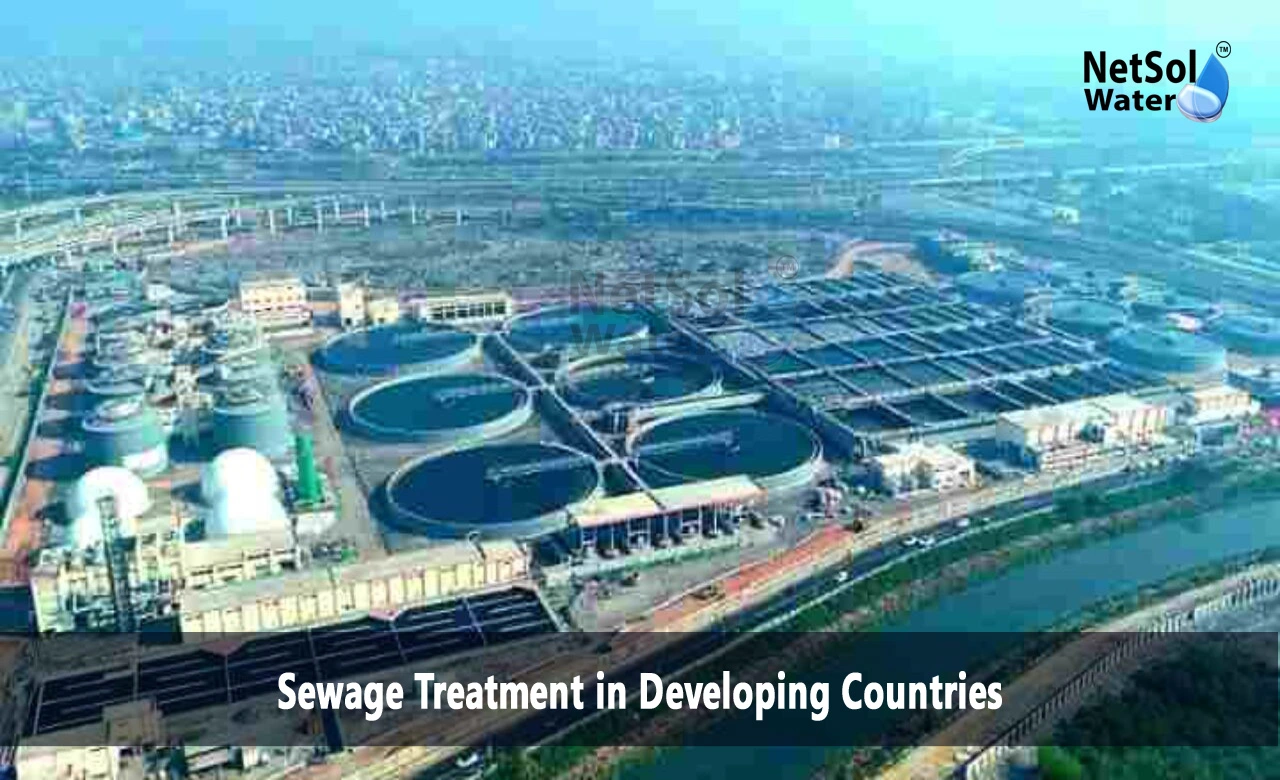Sewage Treatment in Developing Countries
Sewage treatment is super important for keeping people healthy and protecting nature. But in poorer countries, it's often forgotten about. This causes sickness, harms the environment, and slows down how much money these places can make. Without good sanitation, wastewater spreads diseases like cholera, making people sick and hurting farming. Also, untreated sewage makes water dirty, harming plants and animals and making it harder to grow food. Plus, it smells bad and looks gross, so fewer people want to visit or invest in these areas. To fix this, we need to spend more money on sewage treatment and cleaning up, so everyone can stay healthy, and the environment can get better.
The Current State
The global landscape of sewage treatment is marked by a stark disparity. Developed nations boast treatment rates exceeding 70%, while a mere 8% of wastewater receives any treatment in low-income countries. This translates to a staggering 80% of wastewater globally being released directly into the environment without any treatment. The consequences of this neglect are dire. Contaminated water becomes a breeding ground for waterborne diseases like cholera, typhoid, and dysentery, jeopardizing the health of millions. It pollutes freshwater sources, impacting aquatic life and hindering access to clean drinking water. Additionally, untreated sewage disrupts sensitive ecosystems and contributes to algal blooms, further degrading water quality.
Challenges Faced
Several factors contribute to the low treatment rates in developing countries:
Limited Infrastructure: Building and maintaining sewage treatment plants requires significant capital investment. Many developing countries lack the financial resources to establish these complex systems, particularly in sprawling informal settlements.
Operation and Maintenance: Even when treatment plants exist, operational costs can be high. Skilled personnel are needed for maintenance, and a steady supply of electricity is often a challenge in these regions.
Social and Cultural Factors: Public awareness about sanitation practices and the importance of sewage treatment can be low. Traditional sanitation methods, while providing basic waste disposal, may not offer adequate treatment.
Addressing the sewage treatment challenge in developing countries requires a multi-pronged approach that factors in local contexts and resource constraints.
Here are some promising solutions:
Low-Cost Technologies: Developing and implementing cost-effective treatment options like constructed wetlands, anaerobic baffled reactors, and bio-sand filters can be more feasible for resource-limited settings. These systems often require less land, energy, and skilled labor for operation.
Community-Based Sanitation: Empowering communities to manage their own sanitation needs through on-site sanitation systems like improved pit latrines and septic tanks can be a sustainable approach. Community ownership fosters a sense of responsibility and ensures proper maintenance.
Capacity Building: Investing in training programs for sanitation workers and community leaders is essential. This empowers them to operate and maintain treatment systems effectively and educate others on proper sanitation practices.
Financing the Future: Sustainable Investment
Financing remains a major hurdle. Innovative approaches are needed to bridge the funding gap. Public-private partnerships, microfinance initiatives, and utilizing development aid effectively can play a crucial role. Additionally, exploring revenue models like user fees or utilizing treated wastewater for irrigation can generate income to support long-term sustainability.
Conclusion
Sewage treatment in developing countries is a complex issue with far-reaching consequences for public health and environmental well-being. Addressing it effectively requires a collaborative effort from various stakeholders. Governments, international organizations, NGOs, and local communities must come together to foster innovation, invest in sustainable solutions, and promote community ownership. By working together, we can create a future where clean water is a reality for all, leading to a healthier planet and a brighter tomorrow.
Netsol Water is Greater Noida-based leading water & wastewater treatment plant manufacturer. We are industry's most demanding company based on client review and work quality. We are known as best commercial RO plant manufacturers, industrial RO plant manufacturer, sewage treatment plant manufacturer, Water Softener Plant Manufacturers and effluent treatment plant manufacturers. Apart from this 24x7 customer support is our USP. Call on +91-9650608473, or write us at enquiry@netsolwater.com for any support, inquiry or product-purchase related query.



